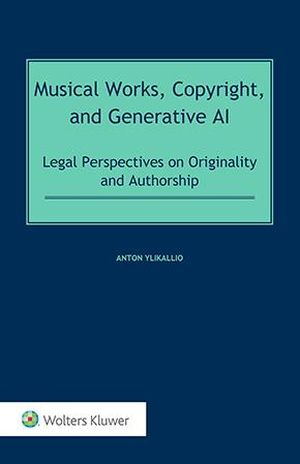
Musical Works, Copyright, and Generative AI focuses on copyright protection for musical compositions. It introduces a novel framework that deconstructs the compositional process into three components – the underlying work, the source material, and prospective reproductions – providing a clearer understanding of creative input and a more practical way to evaluate whether artificial intelligence (AI)-generated music should qualify for protection. As AI tools for creative production become more widespread, the question of copyright protection for AI-generated works is becoming an increasingly significant issue.
What’s in this book:
Based on a wide range of case law and analogies from traditional frameworks for assessing musical compositions in a copyright law context, the analysis suggests that copyright eligibility hinges on the specificity and precision of the instructions shaping the musical work, as well as how clearly they are reflected in the resulting composition. To this end, the author addresses the following seminal questions:
Pragmatic case studies compare AI-assisted and traditional creative processes to examine the relevant legal issues. To enhance the clarity of the analysis, sheet music samples and scores are incorporated, and audio samples are available via a QR code linking to a dedicated database.
How this will help you:
The book sets itself apart by enhancing professional understanding of how generative AI challenges traditional copyright principles, furnishing clarity on originality and authorship in a rapidly evolving technological landscape. As a trailblazing, in-depth, structured approach to determining the role of human creativity in AI-assisted endeavours, this study offers a forward-looking perspective on how intellectual property law can adapt to evolving modes of creative production. It equips legal practitioners, scholars, creators, developers, and policymakers with analytical tools and benchmarks to assess the copyright eligibility of AI-generated works.